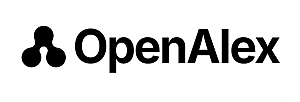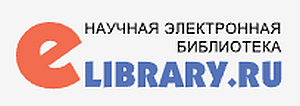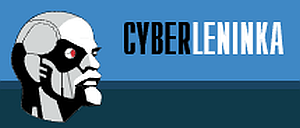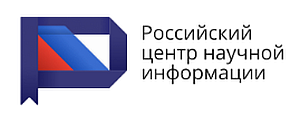Is it Possible to Develop Entrepreneurship at School? Respublica Literaria
DOI:
https://doi.org/10.47850/RL.2021.2.2.98-112Ключевые слова:
cultural factors, innovation, entrepreneurship, school, teachersАннотация
Entrepreneurship will make it possible for young people to adapt to the employment market and participate in not only professional but also social and personal adult life effectively and satisfactorily. This article aimed to emphasize the way of developing entrepreneurship in the educational practice. The base of reflection as Culturally Relevant Pedagogy and Karney’s definition of entrepreneurship. These approaches may open schools as environments for the coordination of all processes hidden in their culture on the way to effectiveness.
The category of entrepreneurship understood as a personal and organizational feature, an attitude, an activity mode, and a path of individual and institutional development were considered. When introducing challenges connected with the development of Entrepreneurship, some tools were described which make it possible to evaluate the changes taking place in the didactic process. This means that reflection on the process of development of must appears in various implementation spaces. It would be observable both at the level of individual development (students’ and teachers’ competencies), about activities undertaken within an organization, as well as changes in organizational climate and overall educational environment.
Библиографические ссылки
Абрамова, М.А., Крашенинников, В.В., Либерска, Х., Фарника, М. (2015). Трансляция культуры и/или развитие в деятельности: германо-российская и англо-саксонская модели образования. Философия образования. № 2 (59). С. 37-45.
Abramova M.A., Krasheninnikov V.V., Liberskaya Kh., Farnika M. (2015). Translation of culture and / or development in activity: German-Russian and Anglo-Saxon models of education. Philosophy of education. no. 2 (59). pp. 37-45. (In Russ.)
Каменев, Р.В., Крашенинников, В.В., Фарника, М., Абрамова, М.А. (2018). Высокие технологии и трансформация системы образования: конструктивность и деструктивность. Вестник Новосибирского государственного педагогического университета. Т. 8. № 6. С. 104-119.
Kamenev, R.V., Krasheninnikov, V.V., Farnika, M., Abramova, M.A. (2018). High technologies and the transformation of the education system: constructiveness and destructiveness. Bulletin of the Novosibirsk State Pedagogical University. Vol. 8. no. 6. pp. 104-119. (In Russ.)
Brown-Jeffy, S., Cooper, J.E. (2011). Toward a Conceptual Framework of Culturally Relevant Pedagogy: An Overview of the Conceptual and Theoretical Literature. Teacher Education Quarterly. Vol. 38. no. 1. pp. 65-84.
Carlgren, L., Rauth, I., Elmquist, M. (2016). Framing Design Thinking: The Concept. In: Idea and Enactment. Creativity and Innovation Canagement. Vol. 25 (1), pp. 38–57. DOI: 10.1111/caim.12153.
Drucker, P.F. (1992). Innowacja i przedsiębiorczość. Praktyka i zasady. Transl. A. Ehrlich. Warszawa.
Drucker, P.F. (1992). Innovation and entrepreneurship. Practice and rules. Transl. A. Ehrlich. Warsaw. (In Polish)
Ekel, J., Jaroszyński, J., Ostaszewska. J. (1965). Mały słownik psychologiczny. Warszawa.
Ekel, J., Jaroszyński, J., Ostaszewska. J. (1965). A little psychological dictionary. Warsaw. (In Polish)
Zalecenia Ready Europejskiej w sprawie kompetencji kluczowych. (2018). Dziennik Urzędowy Unii Europejskie. №4.6. C189/1-189/13. [Электронный ресурс]. URL: https://eur-lex.europa.eu/legal-content/PL/TXT/PDF/?uri=CELEX:32018H0604(01)&from=EN (дата обращения 25.01.2021).
European Ready Recommendations on Key Competences. (2018). Official Journal of the European Union. no. 4.6. C189/1-189/13. [Online]. Available at: https://eur-lex.europa.eu/legal-content/PL/TXT/PDF/?uri=CELEX:32018H0604(01)&from=EN (Accessed: 25 January 2021). (In Polish)
Farnicka, M., Liberska, H. (2014). Tworzenie środowiska sprzyjającego uczeniu się – analiza psychologiczna. Teraźniejszość- Człowiek – Edukacja. no. 67 (3). pp. 57-71.
Farnicka, M., Liberska, H. (2014). Creating an environment conducive to learning-psychological analysis. The Present-Man-Education. no. 67 (3). pp. 57-71. (In Polish)
Fullan, M. (2001). Leading in a culture of change: being effective in complex times. San Francisco.
Fullan, M. (2003). Change forces with a vengeance. London. Routhledge Falmer. DOI:10.4324/9780203165805.
Garcês, S., Pocinho, M., Jesus, S.N., Viseu, J. (2016), The Impact of the Creative Environment on the Creative Person, Process, and Product. Avaliação Psicológica. no. 15(2), pp. 169–176.
Hall, C. S., Lindzey, G. (2001). Teorie osobowości. Warszawa.
Hall, C. S., Lindzey, G. (2001). Personality theory. Warsaw. (In Polish)
Hargadon, A.B., Bechky, B.A. (2006). When collections of creatives become creative collectives: A field study of problem solving at work. Organization Science. Vol. 17. no. 4. pp. 484-500. DOI:10.1287/orsc.1060.0200
Karney, H. (1997). Psychopedagogika pracy. Gdansk.
Karney, H. (1997). Psychopedagogy of work. Gdansk.
Kortan, J. (eds.) (1997). Podstawy ekonomiki i zarządzania przedsiębiorstwem, Wydawnictwo C. H. Beck, Warszawa.
Kortan J. (eds.) (1997). Fundamentals of economics and business management, Wydawnictwo C. H. Beck, Warsaw.
Loo, S. (2017), Creative Working in the Knowledge Economy. [Online]. Available at: https://www.routledge.com/Creative-Working-in-the-Knowledge-Economy/ Loo/p/book/9781138211391. (Accessed: 16 May 2021).
Łuczak, M. za: Nowosad, I., Uździcki, R. (2013). Innowacje miara rozwoju szkolnej kultury przedsiebiorczosci. W: Nowosad, I., Karmolińska-Jagodzik E. (red.). Potencjał szkoły w tworzeniu więzi ze środowiskiem, Wydawnictwo Wyższej Szkoły Humanistycznej im. Króla Stanisława Leszczyńskiego, Lesznopp. pp. 87-120.
Luczak, M. (2013). Innovations a measure of the development of school culture of entrepreneurship. In: I. Novosad, E. Karmolińska-Jagodzik (eds.). The potential of the school in creating links with the environment. Leszno. King Stanisław leszczyński WWSH in Leszno, 2013,. pp. 87-120. (In Polish)
Matczak, A., Martowska, K. (2009). Instrumental and motivational determinants of social competencies. W: A. Matczak (ed.). Determinants of social and emotional competencies. Warszawa. Wydawnictwo Uniwersytetu Kardynała Stefana Wyszyńskiego.
Matczak, A., Martowska, K. (2009). Instrumental and motivational determinants of social competences. In: A. Matczak (ed.). Determinants of social and emotional competencies. Warszawa: Wydawnictwo Uniwersytetu Kardynała Stefana Wyszyńskiego. (In Polish)
Marshall, D. (2013). There’s a Critical Difference Between Creativity and Innovation. Business Insider, Primed Associates. [Online]. Available at: https://www.businessinsider.com/difference-between-creativity-and-innovation-2013-4#ixzz2w0virpal (Accessed: 6 May 2021).
Competence. In: Merriam-Webster.com dictionary. [Online]. Available at: www.merriam-webster.com/dictionary/competence. (Accessed: 1 June 2021).
Nowosad, I. Farnicka, M. (2019). Entrepreneurship at school. Is institutional development of entrepreneurship possible? In: M. Zapotoczna (ed.). International Forum for Education. no. 12. pp. 103-116. Toruń. Marszalek Press. DOI: 10.15804/IFforE2019.06
Nuttin, J. (1968). Struktura osobowości. Warszawa.
Nuttin, J. (1968). Personality structure. Warsaw. (In Polish)
Nuttin, J. (1968). Personality structure. Warsaw.
Parlament Europejski i Rada Europy z 2006 r. (Dz.U. L 394 z 30.12.2006, p. 13).
European Parliament and council of Europe, 2006 (OJ l 394, 30.12.2006, p.13). (In Polish)
Paulus, P.B., Dzindolet, M. (2008). Social influence, creativity and innovation. Social Influence. Vol. 3. no. 4. pp. 228–247. DOI: 10.1080/15534510802341082.
Ricards, T. (1999). Creativity and the management of change. Blackwell Publishers, NY.
Robinson, K., Azzam, A.M. (2009). Why creativity now? Educational Leadership. Vol. 67. no. 1, pp. 22–26.
Siek, St. (1993). Wybrane metody badania osobowości. Warszawa.
Siek, St. (1993). Selected methods of personality testing. Warsaw. (In Polish)
Wojnarowska, M. (2016) Kompetencje kluczowe- przygotowanie do życia. Trendy. no. 4. pp. 4-11. [Электронный ресурс]. URL: accessed from: http: //www.bc.ore.edu.pl/Content/893/T416_Kompetencje+kluczowe_przygotowanie+do+zycia.pdf (дата обращения 20.04.2021).
Wojnarowska, M. (2016) Key competences-preparation for life. Trends. no. 4. pp. 4-11. [Online]. Available at: http://www.bc.ore.edu.pl/Content/893/T416_Kompetencje key preparation for life.pdf (Accessed: 20 April 2021).
Загрузки
Опубликован
Версии
- 2021-06-24 (2)
- 2021-06-23 (1)
Как цитировать
Выпуск
Раздел
Лицензия

Это произведение доступно по лицензии Creative Commons «Attribution-NonCommercial-NoDerivatives» («Атрибуция — Некоммерческое использование — Без производных произведений») 4.0 Всемирная.
https://oc.philosophy.nsc.ru/remote.php/webdav/%D0%94%D0%BE%D0%B3%D0%BE%D0%B2%D0%BE%D1%80%20%D1%81%20%D0%B0%D0%B2%D1%82%D0%BE%D1%80%D0%BE%D0%BC%20RL-%D0%BF%D1%80%D0%B0%D0%B2.doc










